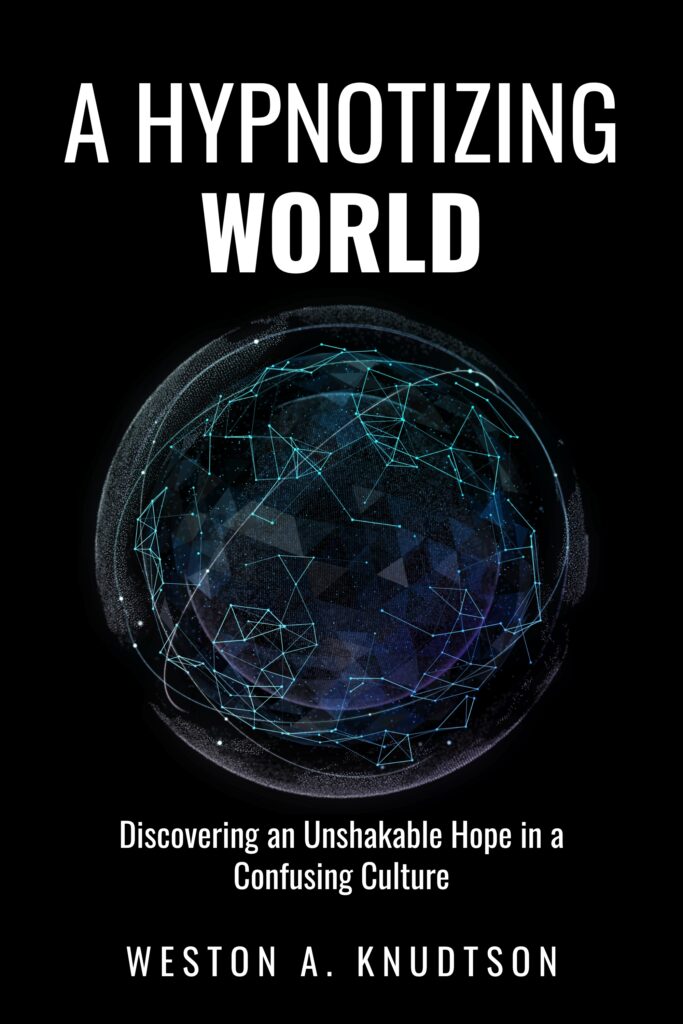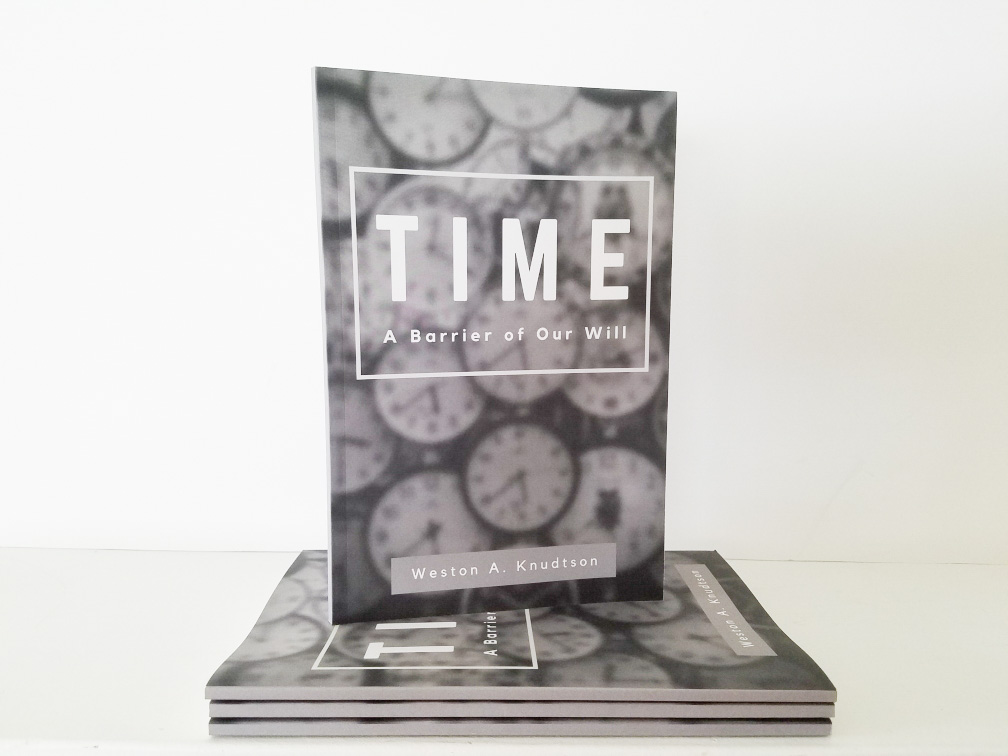Note: Most of this article is taken from “Chapter 15: What is Faith” in my new book: A Hypnotizing World. Order your copy today here.
As Christians, we understand that by choosing to follow Jesus, we’ve chosen a new way of life. This new way of life is all because of Jesus’ gift to us—salvation. Like all gifts, they need to be received first. We can’t simply expect Jesus’ gift to come to us like an automatic deposit into our bank account. No, Jesus died on the cross to restore a relationship. This means there is to be an interaction between the gift giver and the gift receiver. Jesus, the gift giver, bought the gift and now extends an open invitation for all peoples to receive the gift. What do you and I need to do to receive this gift? The first step to interact with the gift giver is through faith.
Faith
I know this is another one of those strange, overused, and contagiously misunderstood religious words. I’d like to clear that up here. Most people think of faith like a blind faith and use the expression, “I’m taking a leap of faith,” whenever they are about to do something completely out of their control. I want to explain how this is the wrong way to think about faith. There is so much more to faith that doesn’t require you to step out blindly. Thinking in terms of a blind faith will only lead to confusion and frustration. Blind faith demands trust and obedience with no logic or reasoning. If we are to have a relationship and know God, then there is no need for blind faith. There is only faith.
A Bible verse I go to often to help remind me what faith means is Hebrews 11:1: “Now faith is the assurance of things hoped for, the conviction of things not seen.” I recommend reading all of Hebrews 11 to understand the context. Let me break this verse down for you and provide some context.
First, what is “the assurance of things hoped for”? If you read through Hebrews 11, or the entire Bible, you will understand “the assurance of things hoped for” refers to the promises of God. From the beginning, God made many promises to specific people who didn’t necessarily get to see these promises fulfilled and yet, they had the faith to believe God would keep His word. We can also translate the word “assurance” as confidence. Faith is having confidence and assurance.
Second, what does “the conviction of things not seen” mean? We cannot see God, but we can know Him through His Word. And, in His Word, many things have not happened yet, such as some of His promises. If we grow in our knowledge and understanding of who God is, then we hold to the conviction that everything He says is true and will come to be. So, again, we may not see all of God’s promises fulfilled, but we trust He will keep His Word because we know Him.
Faith and Reason
Before we move on, I’d like to explain how faith and reason work together. This is important to understand our relationship with God. Like I said earlier, only a blind faith works apart from reason and logic, but true faith in God works with reason and logic. Let me share an example from my life to shed light on this.
In March 2012, I went to Peru for a month as a volunteer to help teach English. Toward the end of my stay, I explored more and went on a five-day trek to Incan Ruins called Choquequiroa. Most of you have probably heard of the ruins of Machu Picchu. Choquequiroa is a much larger ruin discovered later. The trek was thirty-one kilometers or a little over nineteen miles. This doesn’t seem like much, but it quickly gains a lot in elevation. Honestly, this was the hardest hike I have ever done.
What’s the point of telling you this? Well, before I went on the five-day trek to Choquequiroa, I researched the Incans and understood they had lived in and built cities in the area I would be hiking in. I wasn’t there when they built these cities, but I had faith there was evidence of them being there because of what I learned in my research. With my faith and understanding, as I reached the ruins, I saw the evidence I had put my faith in even before seeing it in person. I then had no doubt the Incans had lived there at some point in history.
This kind of faith is more than a blind faith or leap of faith. I had the knowledge and understanding to work with my faith. There was reason and logic to my faith in the Incan ruins. I would even say there was direction and a foundation for my hope in seeing the ruins. My hope had a purpose—I desired to see what I had researched.
Now, how do we see this in the Bible? One example is through the story of Noah and the building of the ark. Hebrews 11:7 explains: “By faith Noah, being warned by God concerning events as yet unseen, in reverent fear constructed an ark for the saving of his household. By this he condemned the world and became an heir of the righteousness that comes by faith.” Because of what Noah believed and knew about God, Noah had faith God would do what He said. And because of Noah’s faith, he obeyed, even when he couldn’t see God or the future.
Again, there is direction, purpose, and a foundation for Noah’s faith. He had knowledge and understanding of God. So, when God told Noah about future events, Noah had direction and purpose for believing what God told him. Without a preexisting knowledge and understanding of God, Noah would act on nothing. He would be like someone driving blind, saying, “I hope I don’t hit anything.”
By taking our knowledge and understanding of who God is and what He’s done in His Word, we reason with our hope. This is faith—reasoning with our hope through what we know and believe to be true. There is confidence and assurance because of a foundation of knowledge and understanding we already have of the person or thing we believe and have hope in.
Hammering this Down
I want to reiterate what faith is because faith is such a huge part of the Christian life, and I don’t want us to misunderstand it. Again, Hebrews 11:1 defines faith as “the assurance of things hoped for, the conviction of things not seen.” How do we have assurance or confidence in the things we hope for, the things not seen? By having reason and logic in the thing we hope for and do not see. There must be some knowledge, understanding, and evidence for whatever we hope for and cannot see. Otherwise, there would be no purpose, direction, or foundation for our hope. This would simply be wishful thinking or blind faith.
True faith in God requires us to first know what God says about Himself and then believe all He says. We need to trust Him and His Word. Without trust, there would be no relationship between us and God. That is why faith is the first step in moving toward God and receiving His gift. As we’ll discuss more in the next chapter, faith is also the first step in moving away from the lie and toward the truth.
Want to read more??? Order your copy of A Hypnotizing World on Amazon by clicking this link. Thank you for reading!



4 Responses
I love this reminder of faith and what it truly means. This is exactly what I needed this morning drinking my cup of coffee and looking out at the beauty God provides every day and I have faith that He is with me.
I’m glad this post was a helpful reminder. Thank you for reading!
This is the argument most have with Christianity and why it’s so hard to even consider something that you haven’t seen yet to put your faith in and beleive. With your life experience of the faith you had based on the resources provided and going to an incan ruin, it was a great visual of the things we have faith in everyday based on resource and how we should be just as easily faithful to the resources and the promises mapped out in the Bible. Thank you for sharing!
I’m glad this post was helpful in understanding what faith means and how to explain it to others. Thank you for reading!